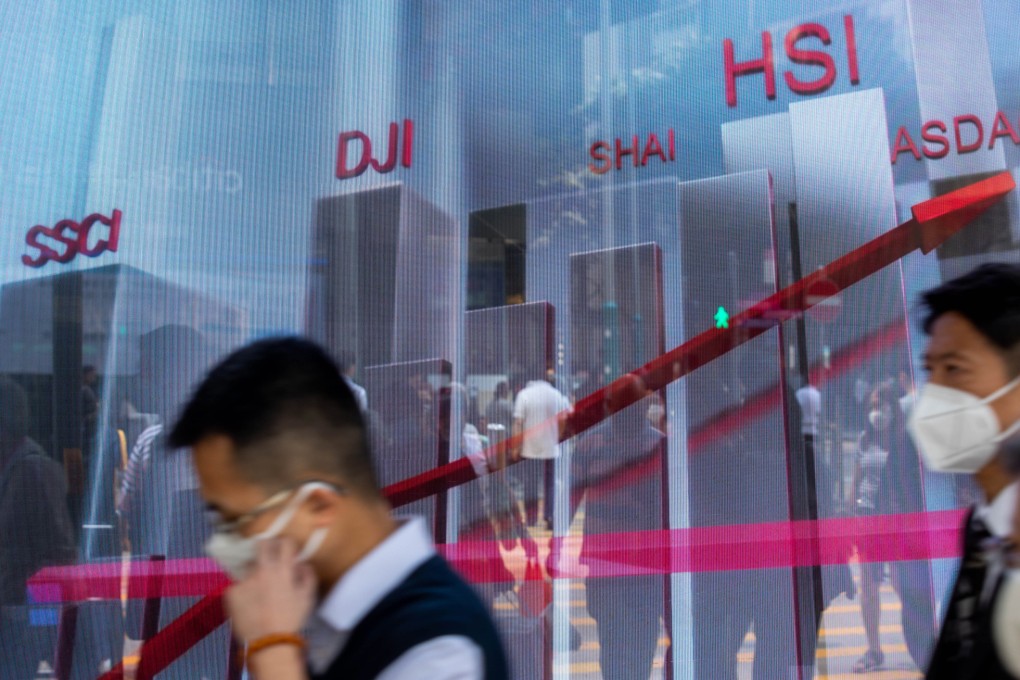Advertisement
Hong Kong technology stocks extend quarterly decline as jitters about global growth resurface
- Tech stocks extended a quarterly loss as monetary policy tightening and the Russia-Ukraine war reignited fears of a global growth slowdown
- Traders were also on edge over a ‘yield-curve inversion’ in US Treasuries, something that tends to foreshadow recession
Reading Time:2 minutes
Why you can trust SCMP
1

Hong Kong technology stocks dropped, extending a quarterly loss, as the prospect of monetary policy tightening and the Russia-Ukraine war reignited concerns about a global growth slowdown.
The Hang Seng Tech Index retreated 0.7 per cent at the close on Friday. The gauge posted a 20 per cent loss in the first quarter, its fifth straight decline, battered by a flurry of headwinds such as a regulatory crackdown in mainland China and the earnings misses of the industry juggernauts.
The benchmark Hang Seng Index rose 0.2 per cent to 22,039.55, reversing an intraday loss of as much as 2 per cent.
Advertisement
Among the biggest decliners, AAC Technologies and Alibaba Group Holding retreated more than 2 per cent. At the other end of the scale, clothes maker Shenzhou International Group and Nongfu Spring gained at least 4.4 per cent to top the list of winners.
The Shanghai Composite Index rebounded 0.9 per cent, as China’s biggest commercial city battles a spike in Covid-19 infections that has already halted production at plants including Tesla’s Gigafactory.
Advertisement
The west half of Shanghai moved into a four-day lockdown on Friday, while most of the city’s eastern region did not come out of lockdown as planned, according to the municipal government.
Advertisement
Select Voice
Choose your listening speed
Get through articles 2x faster
1.25x
250 WPM
Slow
Average
Fast
1.25x